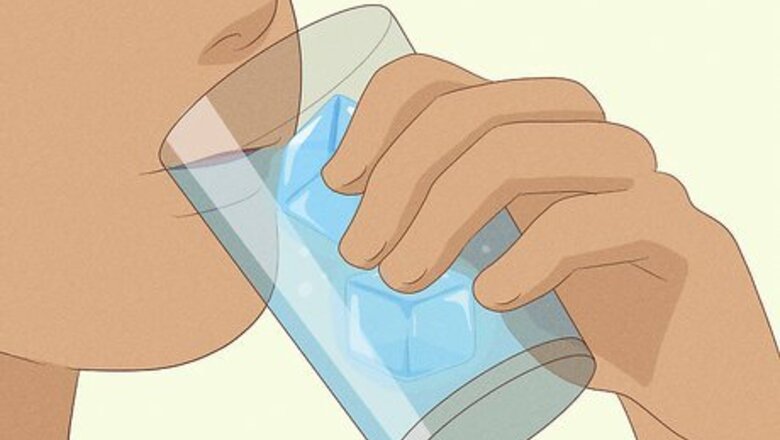
views
Cool your tongue down immediately with icy water.
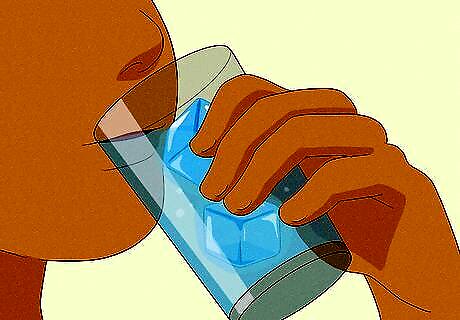
Immediate relief is what the doctor calls for when you burn your tongue. Sip some ice-cold water and hold it in your mouth to soothe your tongue. Alternatively, suck on an ice cube or hold some crushed ice in your mouth.
Eat or drink cold dairy products.
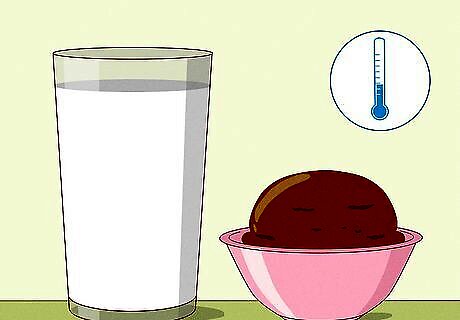
Chilly dairy products coat and soothe your tongue’s burnt tissue. Have a glass of cold milk or eat a cold cup of any type of yogurt. Whatever you have handy can really help relieve the pain of the burn! Ice cream and dairy-based popsicles are other good tongue-soothing options — you might as well enjoy your burnt tongue treatment!
Place sugar or honey on your tongue.
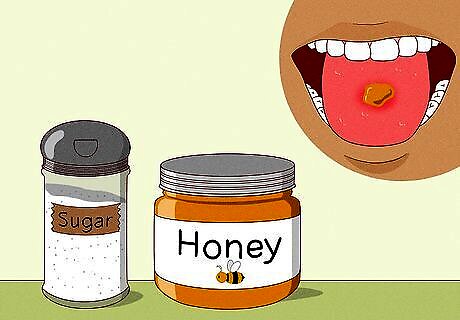
No, this isn't just an excuse for a sweet treat. Believe it or not, placing either sugar or honey directly onto the burn can help soothe the pain, and it may even help speed the healing process. Let it sit on the area for a few minutes, then rinse your mouth with plain water. You can use white sugar, caster sugar, or brown sugar for this—whatever you have on hand.
Rinse your mouth with saltwater.
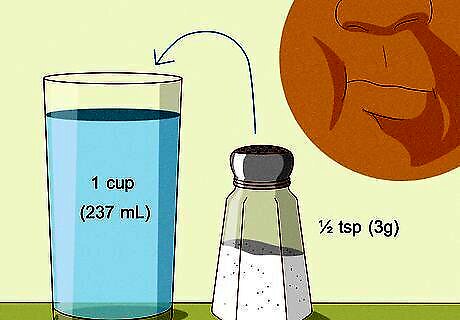
Saltwater rinses provide some relief and kill bacteria. To make a rinse, mix 1/2 tsp (3 g) of salt with 1 cup (237 mL) of cool water. Rinse your mouth out with a saltwater solution after meals and before you go to bed. If you normally use other types of mouthwashes, switch to saltwater rinses until your burn heals.
Take over-the-counter painkillers.
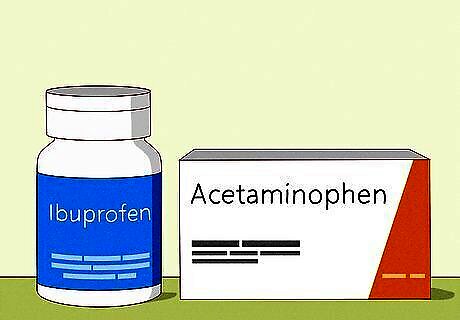
Various common pain meds can provide quick pain relief. Ibuprofen and acetaminophen are 2 good options that you might already have handy! Take the recommended dose according to the instructions on the medication’s packaging. Never exceed the recommended dose or frequency for any medication or you may experience some unpleasant side effects.
Apply an over-the-counter topical oral anesthetic.
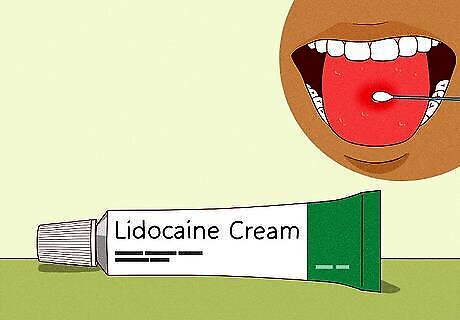
OTC topical anesthetics meant for mouth sores can relieve major pain. Pick up an oral topical anesthetic gel or cream from your local pharmacy or drugstore. Apply it to your burned tongue according to the package’s instructions. Benzocaine gel and lidocaine cream are 2 examples of OTC topical oral anesthetics you can use. Don’t use any topical ointments that aren’t specifically designed to be used inside your mouth.
Avoid hot, spicy, and acidic foods and drinks.
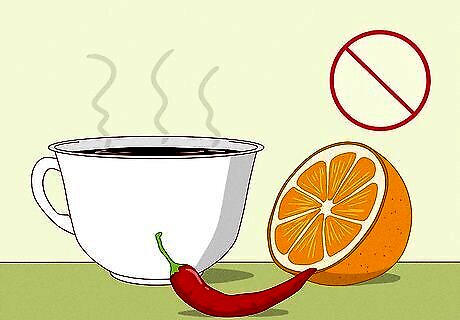
These are all irritants that can make your tongue hurt more. Stay away from things like acidic fruit juices and fruits, as well as tomatoes and anything with vinegar in it. Lay off the curry or anything else with hot spices in it and drink cold beverages only. You’ll be back to eating whatever you want soon enough! Alcohol and tobacco are also irritants that can make your burn feel worse and heal more slowly.
Keep your mouth clean.
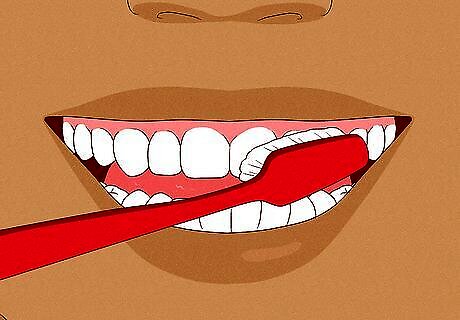
Good oral hygiene can help the healing process. Brush twice a day, floss, and rinse your mouth with water or saline several times a day. This will help prevent an infection—especially if the burn left you with a blister. Don't use an alcohol-based mouthwash, as that could cause more irritation to the burned area. Try making a healing mouth rinse by mixing 1 US qt (0.95 l) of water with 1 tbsp (14 g) of baking soda. Use this to cleanse your mouth after every meal.
Don’t brush your tongue.
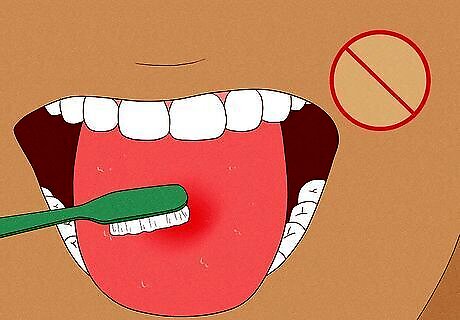
Brushing your tongue can irritate the burn more. Stick to brushing your teeth to keep up a good oral hygiene routine, but keep those bristles away from your poor burnt tongue. You can go back to brushing your tongue in a few days when your burn is all better! Keeping your mouth clean helps prevent infection, so it’s important not to stop brushing altogether.
Avoid smoking or using tobacco products.
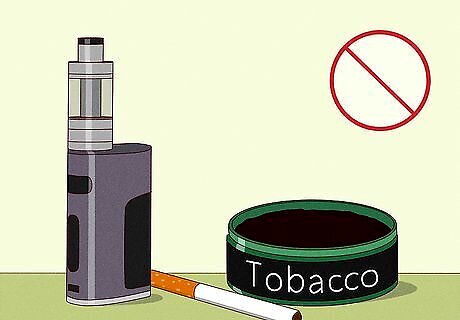
Stay away from cigarettes, vapes, and nicotine pouches or chews. These things are bad enough for you normally, but if you've burned your tongue, they can make the irritation even worse. If you do use these products, talk to your doctor about alternatives that might be less irritating while your mouth heals, like a nicotine patch. And if you don't currently smoke, don't pick up the habit now.
Go to the doctor if you have blisters or signs of an infection.
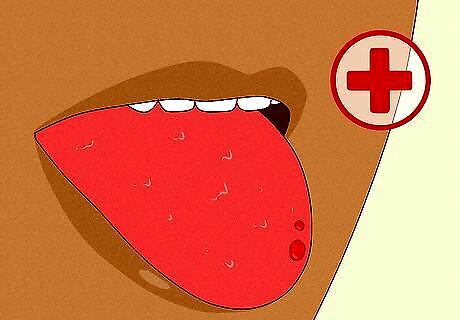
This is uncommon, but it does happen occasionally. Usually, you'll stop eating or drinking something as soon as you realize it's too hot, so it's unusual to get a really serious burn on your tongue. However, if you notice any blisters on your tongue or lips, you could have a second-degree burn and you should see your doctor. Similarly, call for a check-up if you see signs of an infection, including: Redness Pain that persists for longer than a week Swelling Pus Fever
See a doctor if your epiglottis becomes swollen.
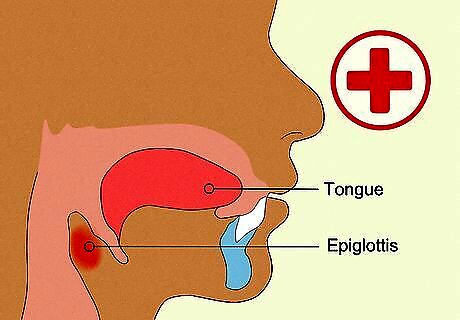
The epiglottis is the flap behind and below the back of your tongue. If your burn is severe, this flap, which covers your windpipe, can become inflamed and make breathing difficult. If you feel like it’s hard to breathe, or if you’re concerned about how bad your tongue burn is in any way, seek medical care. If it’s been 2-3 days since you burned your tongue and it’s not feeling better, or if you develop any blisters in your mouth, see a doctor right away.
Talk to your doctor if your tongue feels burnt for no reason.
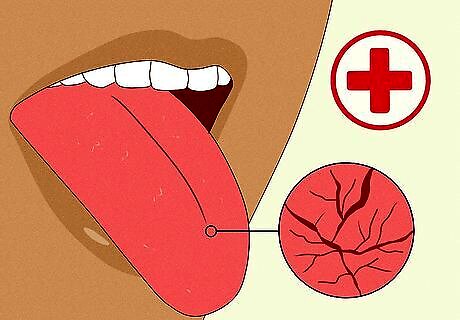
This could be a condition called "burning tongue." In some cases, this might be caused by a nerve issue. However, it may also be caused by something like chronic dry mouth, a fungal infection, inflammation, an allergy, or a deficiency in certain nutrients. Your doctor will help you determine whether there are any treatments that will help relieve your discomfort.










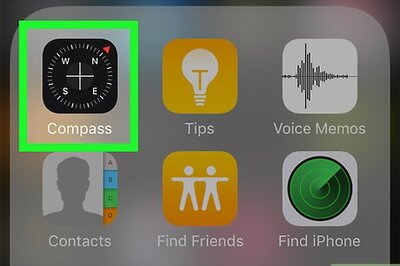
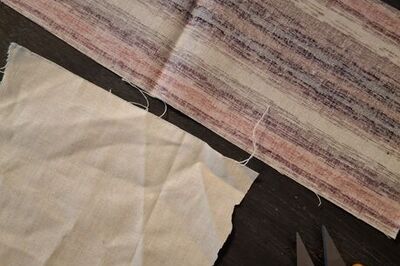

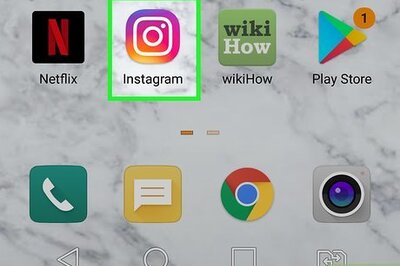

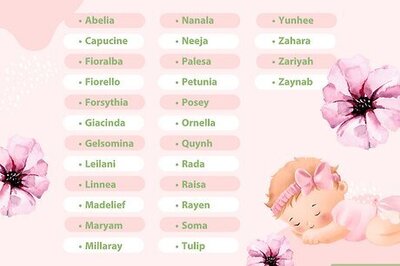

Comments
0 comment